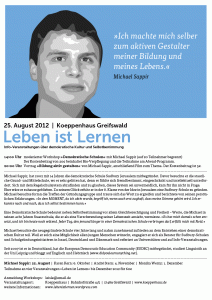I went out for a drink with a friend in a Tel-Aviv pub, and got into a discussion about democratic education and disadvantaged social groups.
My friend works in a democratic school and is doing research on democratic education. She recently visited my school, Sudbury Jerusalem – her first real live encounter with a Sudbury school. We were at an outdoor bar on Tel-Aviv’s famous Rothschild Avenue, and it was the middle of the night. On tall wooden barstools, across a long and narrow wooden table, we sat drinking an Irish stout as she recounted her visit.
My friend loved what she saw at Sudbury Jerusalem and saw in it a place that truly lives the ideals of democratic education. But she also raised a concern: that Sudbury schools are too unusual to attract many families from disadvantaged backgrounds. All I could do is nod sadly.
Radically different
Needless to say, Sudbury schools are open to people of all backgrounds. But Sudbury schools also completely reject traditional ideas of education – curricula, evaluation, adult guidance, etc. – approaching schooling from a radically different direction. It’s difficult for most people to understand, and seems to only attract few families from low-income backgrounds.
When you first tell people about schools like ours, the reaction is often one of shock and disbelief. “So they don’t have to take any classes? How do they ever learn anything? But children need structure!”
Other democratic schools can answer, for instance, that “students have a mentor who helps them identify goals and follow through on them.” This calms a lot of people down.
Sudbury schools, on the other hand, can only answer that the children learn to be responsible for their own time and identify what they want to do and how to do it. Continue reading Democratic schools and social gaps

